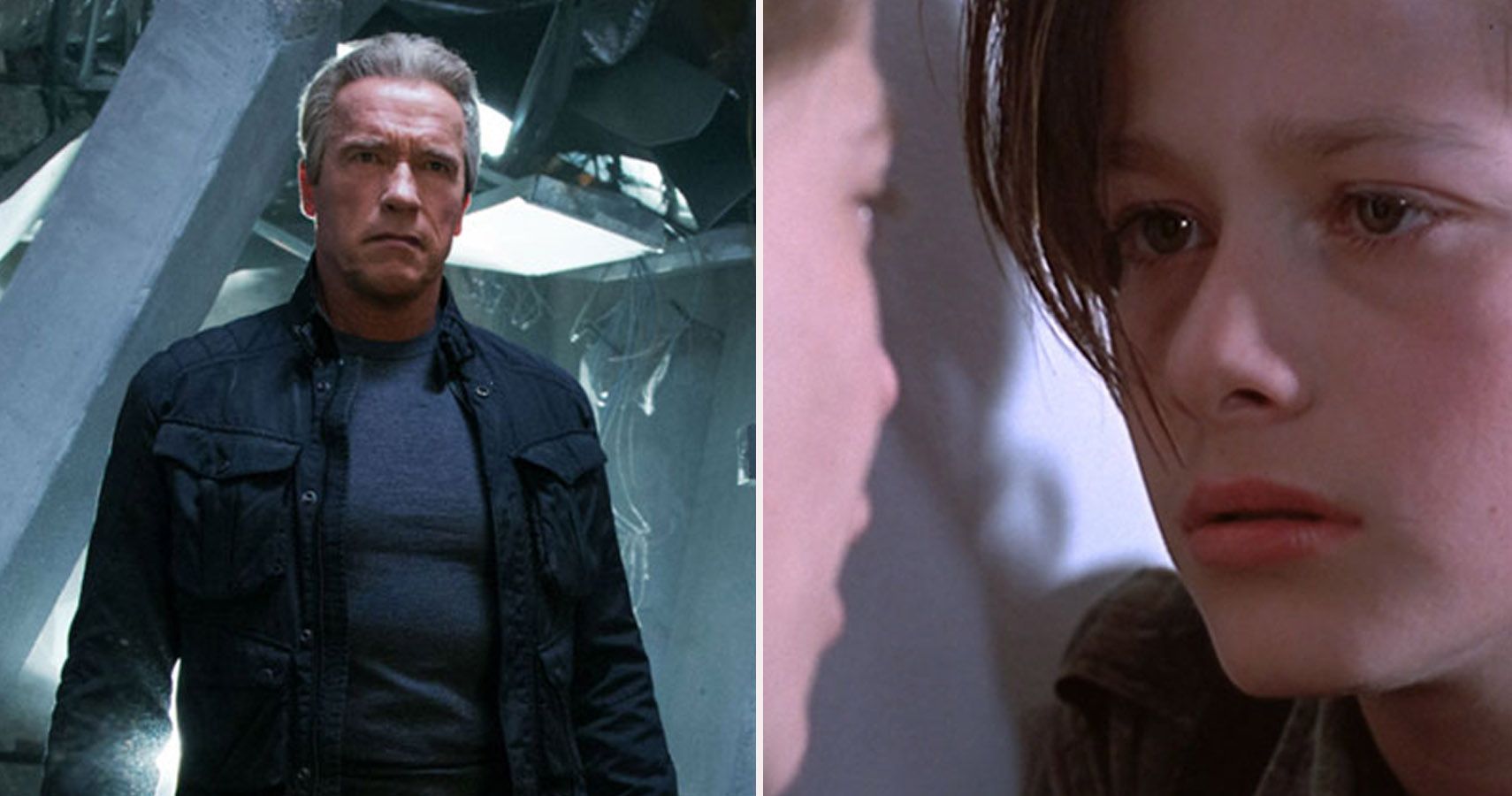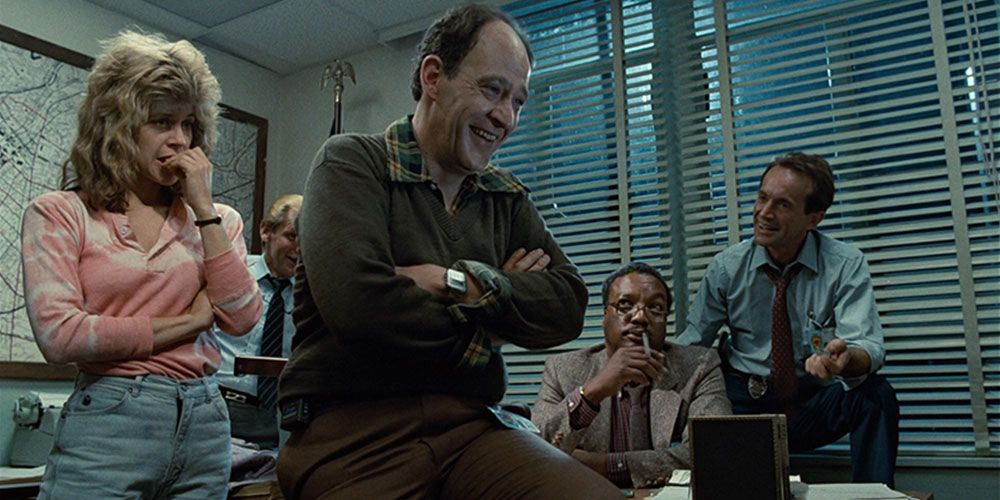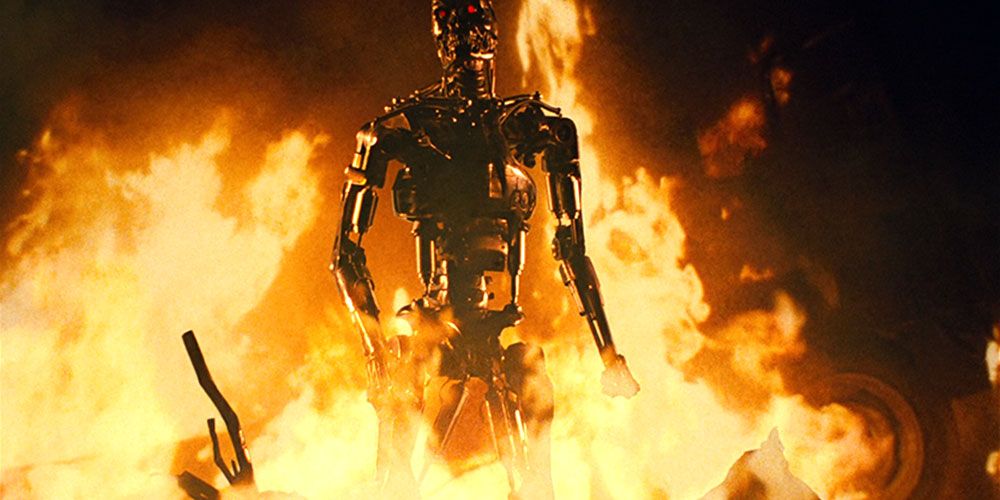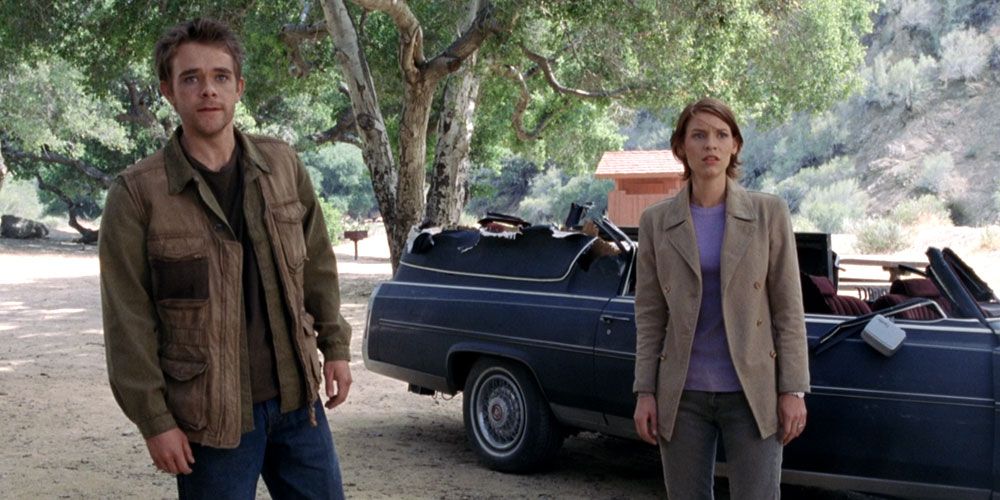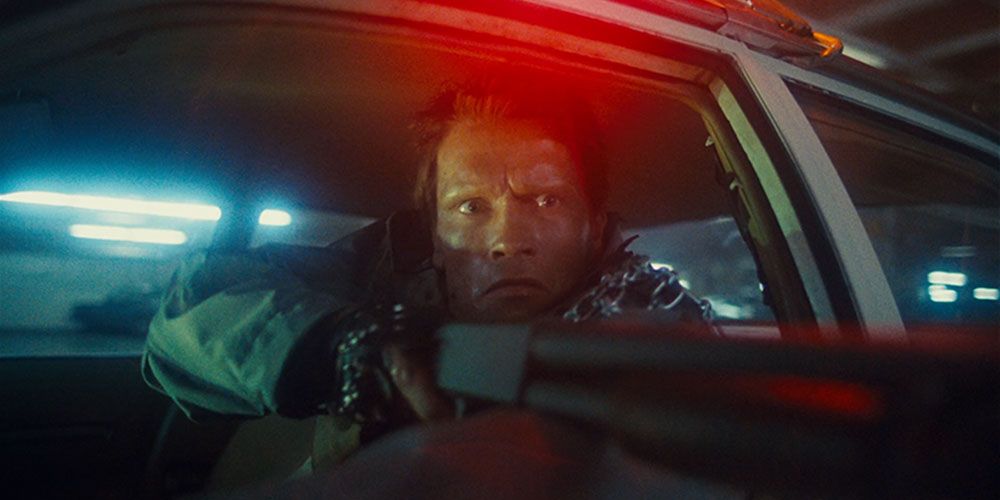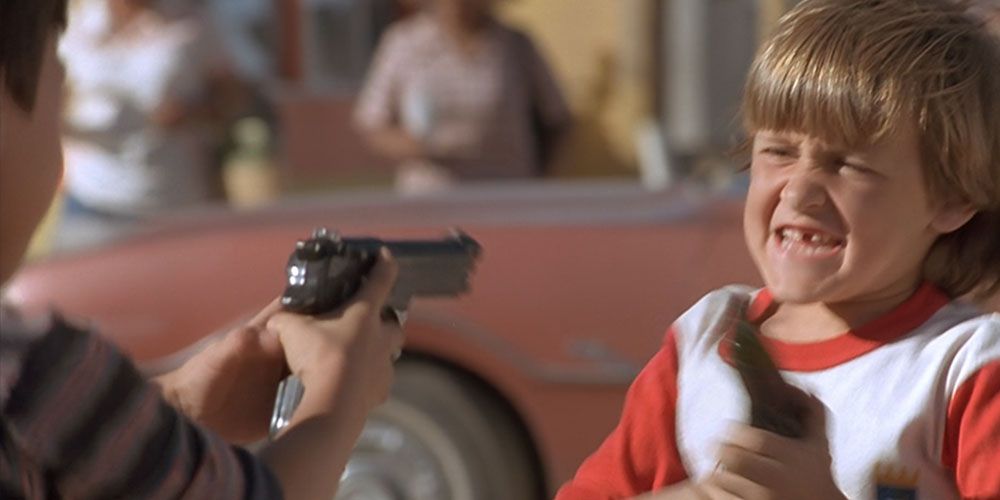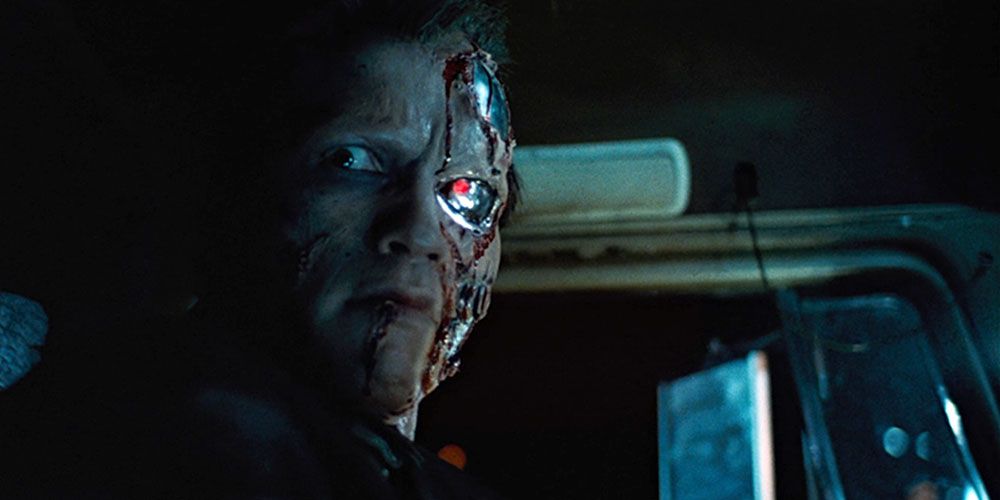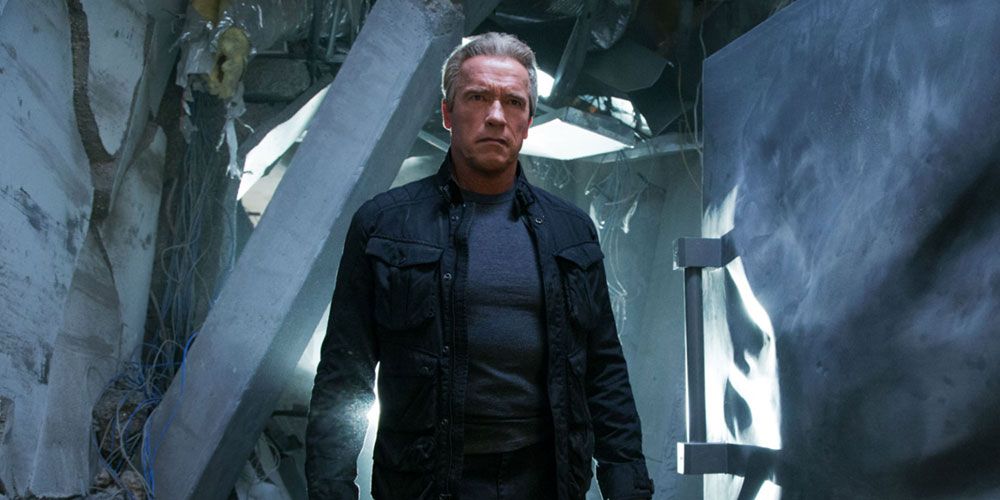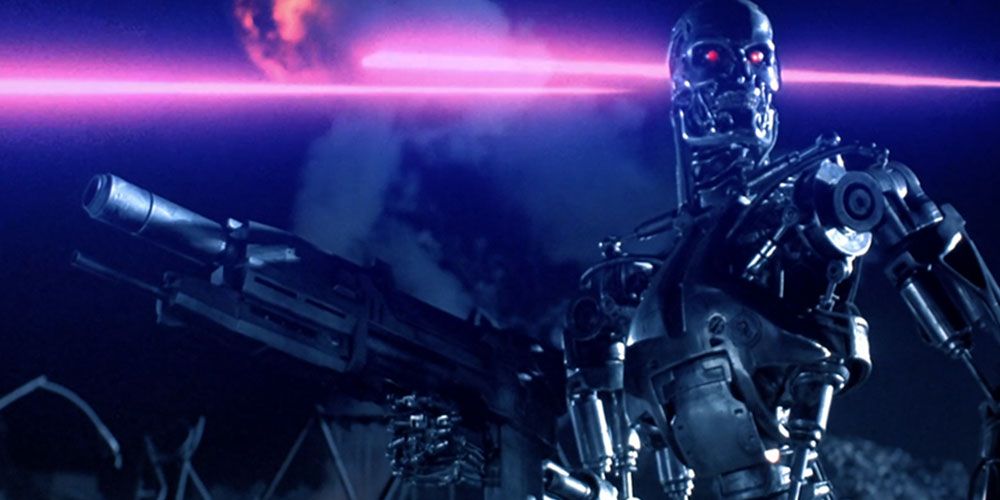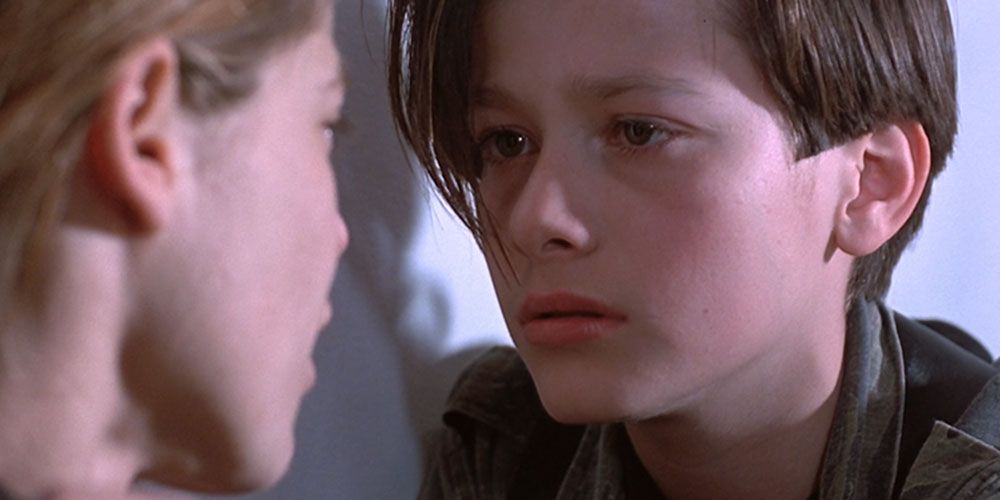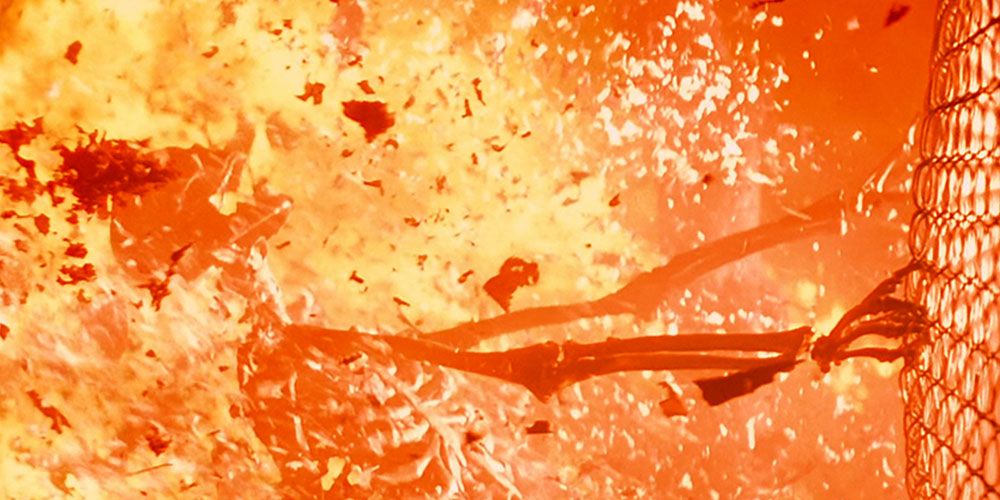It is known that Terminator: Dark Fate didn't perform very well at the box office. Now that the dust has settled, and the sequel has found itself face-down on the pavement with a coroner on the scene, the future of the franchise remains in doubt.
At this point, canning any future sequels is not only necessary but likely wise. For all intents and purposes, the Terminator franchise in its current state is dead. However, that doesn't rule out the possibility of bringing it back in the future.
In order to properly tackle a Terminator reboot, a committed and visionary director is going to need a new angle. Here are 10 things the Terminator franchise must embrace if it has any hope of returning for another round at the box office.
Reduce The Scale Of The Story
The first two Terminator films featured small-scale battles for the future survival of the human race. This is what made them work so well. The character of Sarah Connor was presented with the ultimate nightmare scenario and forced to come to grips with it. The more people she tried to tell, the less inclined they were to believe her, which eventually ended with her in a mental hospital.
This sense of isolation in being the only human who realizes the truth of an impending apocalypse is one of the main linchpins that sold the first two films. The more people are dragged into the fray, the less poignant the story becomes. Terminator doesn't require a full reboot, but any story it presents should scale the conflict back so that audiences can share in the journey.
Stop Focusing On New Terminators
The original T-800 Terminator is the defacto standard by which all other Terminator models are judged. It's an iconic piece of hardware design with a terrifying physique, glowing red eyes and a chilling skeletal grin that makes a mockery out of the human form. Subsequent Terminators have tried to outdo each other, with less-than-stellar results.
The T-1000 is the only Terminator that could possibly vie for the top spot, and that's because it was designed to be a counter-design to the rugged and bulky construction of the original. James Cameron referred to the T-1000 as a "Porsche" for its sleek design and ability to ingratiate itself more cleanly into human society. A reboot needs to avoid everything that came after it, most notably the unimpressive Rev 9.
Don't Mess With The Timeline So Much
The original Terminator hinted at a foreboding future where machines dominate the Earth, and humanity is in free fall. In 1984, this message was loud and clear, especially when weighed against the very real prospect of nuclear war. We're now less than a decade away from the proposed future horror of 2029, which means a Terminator reboot is going to need to shake up the timeline a bit.
If this happens, there can't be any fudging with established events as Terminator sequels are prone to do. One of the reasons Dark Fate suffered is because it trivialized Judgment Day, and the sacrifices made to prevent it. No other plot device is more abused by writers than time travel, and that can't happen with a reboot.
No More Benevolent Terminators
Terminator 2: Judgment Day worked well because it flipped the script of the original upside down, and made Arnold Schwarzenegger's cyborg character a good guy. It then threw an even more deadly Terminator into the mix. This was smart writing for a follow-up sequel.
Unfortunately, Schwarzenegger has played a good Terminator ever since (with the exception of a small digital cameo in Terminator: Salvation), and there's no reason for it. Dark Fate even went so far as to turn the T-800 into a family man running a drapery business. A reboot should get back to the horror aspect of the Terminator. He doesn't always need to be a reprogrammed protector.
Focus on The Message
Terminator films began as a lightweight take on the very real threat of nuclear war, and humanity's penchant for self-destruction and violence. Later films after T2 would instead focus more on the conflict between humans and SkyNET, and that original message was lost in the process.
This is one franchise that needs to focus more on social commentary, not less! Although the threat of nuclear war has diminished significantly since the 1980s, the Terminator franchise can still serve as an analogy vehicle to talk about threats in our modern age.
Make Terminators Scary Again
The first Terminator is arguably a horror film, versus a sci-fi action epic. The relentless pursuit of Sarah Connor by a nearly-indestructible cyborg with a singular purpose is absolutely bone-chilling for any of us to contemplate. Schwarzenegger's first Terminator was truly frightening, especially as his human form continued to deteriorate throughout the film.
This is an excellent plot device that has unfortunately been forgotten. A reboot must embrace this horror mechanic in order to reinvigorate the impact of the original. Terminators aren't human. Let their skin peel off and their eyes fall out so more of the terror underneath is revealed.
Don't Focus On One Actor
The 1980s was all about star power, but nowadays that's less important to audiences than a great story. Part of the reason subsequent Terminator sequels have failed is the over-reliance on Arnold Schwarzenegger as the leading man. As he ages, Schwarzenegger is less inclined to take his shirt off, which makes it harder to sell the character. As such, writers had to rely on the T-800 aging naturally in order to keep him in the role. It's not a very convincing argument, to be honest.
Terminator films don't need to focus on one particular actor in the titular role. The human characters are what truly matter. Any director who takes on a reboot needs to realize that we're well past the days where one actor's face is needed to push an entire franchise.
Embrace The Future War
Terminator: Salvation is the only film in the franchise that takes place after the events of Judgment Day but it was marred by a script that made too many unwise choices, such as the character of Marcus Wright, whose character arc just isn't believable.
The recently released Terminator: Resistance video game was met with a resounding thumbs up by gamers (even if critics didn't like it), and part of the reason is that it nailed the feel of the future war scenes from Terminator 1 and 2. If done right, a future war scenario might be exactly the direction the series needs to go.
Focus On John Connor
We love Sarah Connor, and we always will. However, we still know very little about John Connor, the man who eventually leads the human resistance against the machines. Since his character was bludgeoned out of existence 5 minutes into Terminator: Dark Fate, we may never know where the character could have been taken.
A reboot should focus on John, not Sarah. Anyone who takes on the unenviable task of leading humanity through the darkest period in history must have some baggage piling up. Focusing on Sarah would be a rehash of everything that's already been done, and that's not the way to move forward.
Make Judgement Day Horrifying
Ask most Terminator fans what they regard as the most unsettling scene in the franchise, and they'll undoubtedly reference Sarah Connor's nuclear nightmare from Terminator 2. Not only is it still the most accurate depiction of a nuclear blast ever put on film, but it's also one of the most horrifying to watch, even after repeated viewings.
A Terminator reboot should amp up this horror, rather than dial it down. Technology has evolved to the point where Hollywood should be able to depict an accurate nuclear holocaust. Not only would it jar audiences to their core, but it would set a tone for a reboot that isn't focused on comedic hi-jinks and over-the-top plot devices, but the sheer terror of what comes next.

